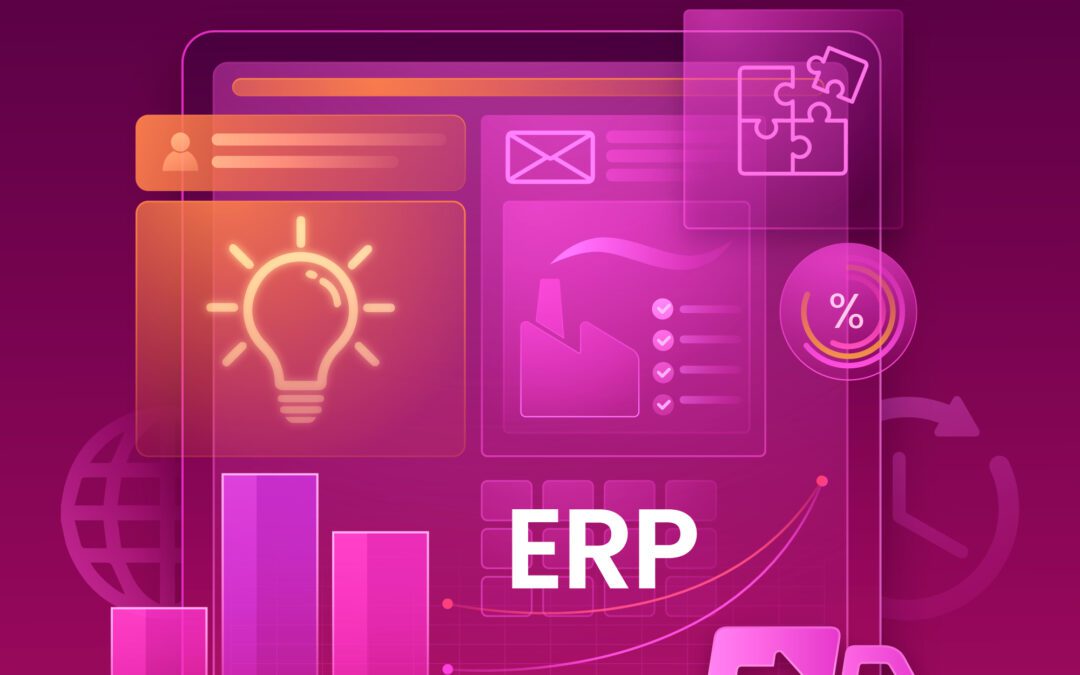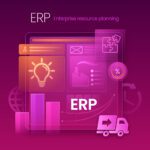Enterprise Resource Planning (ERP) systems are essential tools for organizations to streamline their business processes and ensure seamless integration across departments. However, despite their importance and advanced capabilities, ERP systems are often plagued by performance issues, leading to frustratingly slow processing speeds. These delays can significantly affect productivity, employee satisfaction, and the overall efficiency of the organization. But why do ERP systems tend to be so slow? In this article, we will delve into the common causes of slow ERP systems and provide actionable insights on how to resolve these issues effectively.
Understanding ERP Systems
Before diving into the causes of slow ERP systems, it’s important to understand what an ERP system is and how it functions. ERP systems are integrated software platforms that manage a wide range of business processes, such as accounting, procurement, manufacturing, inventory management, human resources, and customer relations. They consolidate data from different departments, offering real-time insights and ensuring that all teams are working with accurate and up-to-date information.
While ERP systems offer tremendous benefits, they are also complex, with large datasets and a wide array of functionalities that can sometimes lead to performance bottlenecks.
The Role of System Architecture in ERP Performance
The architecture of an ERP system plays a significant role in its performance. When an ERP system is designed, it is essential to consider how its various components interact with each other, how data is stored, and how information is processed across multiple modules. A poorly designed system architecture can lead to slow response times, data retrieval issues, and overall inefficiency.
1. Database Issues
One of the most common causes of a slow ERP system is related to the database. The database is where all the business data, such as financial records, inventory information, and customer data, is stored. If the database is not optimized, it can lead to slow data retrieval and increased latency, which can drastically impact the performance of the ERP system.
Over time, databases tend to accumulate a large amount of redundant, outdated, or fragmented data. This not only makes the database sluggish but also increases the time needed for queries and data processing. Without proper indexing and regular database maintenance, the system will struggle to retrieve information efficiently.
2. Network Bottlenecks
ERP systems often rely on a network of servers, client computers, and cloud-based resources to manage data. A slow or unstable network connection can create delays in transferring data between these resources, causing the system to slow down. In situations where large amounts of data are being transferred, the network’s bandwidth and latency can significantly affect the performance of the ERP system.
Organizations that have distributed networks or rely on remote servers often experience more significant network-related slowdowns. To prevent this, it’s essential to ensure that the network infrastructure is reliable and that the ERP system is optimized for cloud or hybrid environments.
System Load and Server Resources
3. Insufficient Hardware Resources
Another factor that contributes to ERP system slowdowns is insufficient hardware resources. As businesses grow, so do their data and operational needs. If the hardware running the ERP system is outdated or does not meet the demands of the system, it can result in lagging performance. The ERP system might require more processing power, memory, or storage capacity than what the existing infrastructure can provide.
In many cases, ERP systems run on shared server environments, where other applications or processes are competing for resources. This shared resource scenario can lead to performance degradation, especially when the system is under heavy load during peak business hours. Upgrading hardware or moving to dedicated servers can help ensure that the ERP system runs at optimal speeds.
4. Overloading the Server
Many ERP systems are designed to handle a large number of concurrent users and processes. However, when an ERP system is overloaded with too many requests or users simultaneously accessing the system, the server can become overwhelmed. This can cause delays in processing transactions, loading reports, and accessing data.
An overload on the server can also be exacerbated by inefficient code or poorly optimized workflows, which demand more resources than necessary. To avoid server overloads, it’s critical to implement load balancing techniques, ensure the system can scale with demand, and continuously monitor performance.
ERP System Customization and Complexity
5. Excessive Customization
While ERP systems are highly customizable to meet the specific needs of an organization, excessive customization can lead to performance issues. Customizations often involve complex programming and integrations that can increase the complexity of the system, making it more difficult for the ERP software to operate efficiently.
Custom features can create additional database queries, slow down user interfaces, and add unnecessary layers to the system, all of which can contribute to slower processing times. It’s essential to keep customizations to a minimum and ensure that they are optimized for performance.
6. Too Many Add-Ons and Integrations
ERP systems are typically designed to integrate with various third-party applications, such as CRM software, HR platforms, and business intelligence tools. While integrations can improve the functionality of the system, they can also slow it down if too many are added or if the integrations are not properly managed.
Each additional integration or add-on can introduce new queries, data exchanges, and additional workloads for the ERP system. This can increase the complexity of the system, making it more prone to performance issues. It’s crucial to evaluate the necessity of each integration and add-on to ensure that they are adding value without sacrificing performance.
Poorly Optimized Processes
7. Inefficient Business Processes
An often-overlooked factor contributing to slow ERP performance is inefficient business processes. When workflows are not streamlined or optimized, they can create bottlenecks in the system. For example, if a business process involves multiple steps or requires excessive data entry, it can slow down the entire system.
ERP systems rely on efficient workflows to process data and complete tasks in a timely manner. If a process is unnecessarily complicated or inefficient, it can result in delays across the system. Organizations should regularly review their business processes to identify areas that can be improved or automated to enhance ERP performance.
8. Lack of Regular System Maintenance
ERP systems require regular maintenance to ensure that they continue running smoothly. Without routine checks, updates, and optimizations, the system can become sluggish over time. This can include database cleaning, software updates, and hardware upgrades.
Failing to maintain the ERP system can result in performance degradation, as outdated software or unoptimized databases begin to interfere with the system’s ability to operate efficiently. Regular system maintenance is essential to prevent issues from arising and to ensure that the system can handle growing business demands.
External Factors Affecting ERP Speed
9. External Software and Hardware Dependencies
Sometimes, external factors beyond the control of the ERP system can affect its speed. For instance, ERP systems often rely on third-party software or hardware components, such as cloud services or backup systems. If these external resources experience downtime or performance issues, they can have a cascading effect on the ERP system’s performance.
Ensuring that all external dependencies are reliable and high-performing is key to maintaining an efficient ERP system. Businesses should carefully vet third-party providers and have contingency plans in place to minimize the impact of external issues on ERP performance.
Best Practices for Optimizing ERP Performance
10. Regularly Monitor and Audit the System
One of the best ways to prevent slow ERP performance is to implement regular monitoring and auditing of the system. By tracking key performance metrics such as database response times, server load, and system uptime, businesses can identify performance issues before they become critical.
This proactive approach enables organizations to take corrective action quickly, whether that involves upgrading hardware, optimizing workflows, or addressing inefficient processes. Regular audits also help ensure that the ERP system is aligned with the company’s goals and requirements.
11. Cloud Migration
For businesses that are still running ERP systems on-premises, cloud migration can be an effective way to boost performance. Cloud-based ERP solutions offer scalability, flexibility, and performance optimization features that can significantly enhance system speed and reduce latency.
By migrating to the cloud, businesses can benefit from the resources and capabilities of cloud providers, which are designed to handle large amounts of data and traffic. Cloud-based ERP systems also offer automatic updates and maintenance, ensuring that the system remains optimized and up-to-date without requiring manual intervention.
Conclusion
ERP systems are vital for organizations looking to integrate their business processes and drive efficiency. However, slow ERP performance can hinder productivity and lead to frustration among employees. The causes of slow ERP systems are multifaceted, ranging from database issues and hardware limitations to inefficient processes and excessive customizations.
By identifying and addressing these performance bottlenecks—whether through system optimization, hardware upgrades, or process streamlining—businesses can ensure that their ERP systems operate efficiently and meet their evolving needs. Regular monitoring, maintenance, and cloud migration are crucial steps toward achieving optimal ERP performance and avoiding the common pitfalls of slow systems.
For more information on optimizing your ERP system, consider consulting with an ERP specialist or IT consultant who can help you tailor solutions to your unique business requirements.






